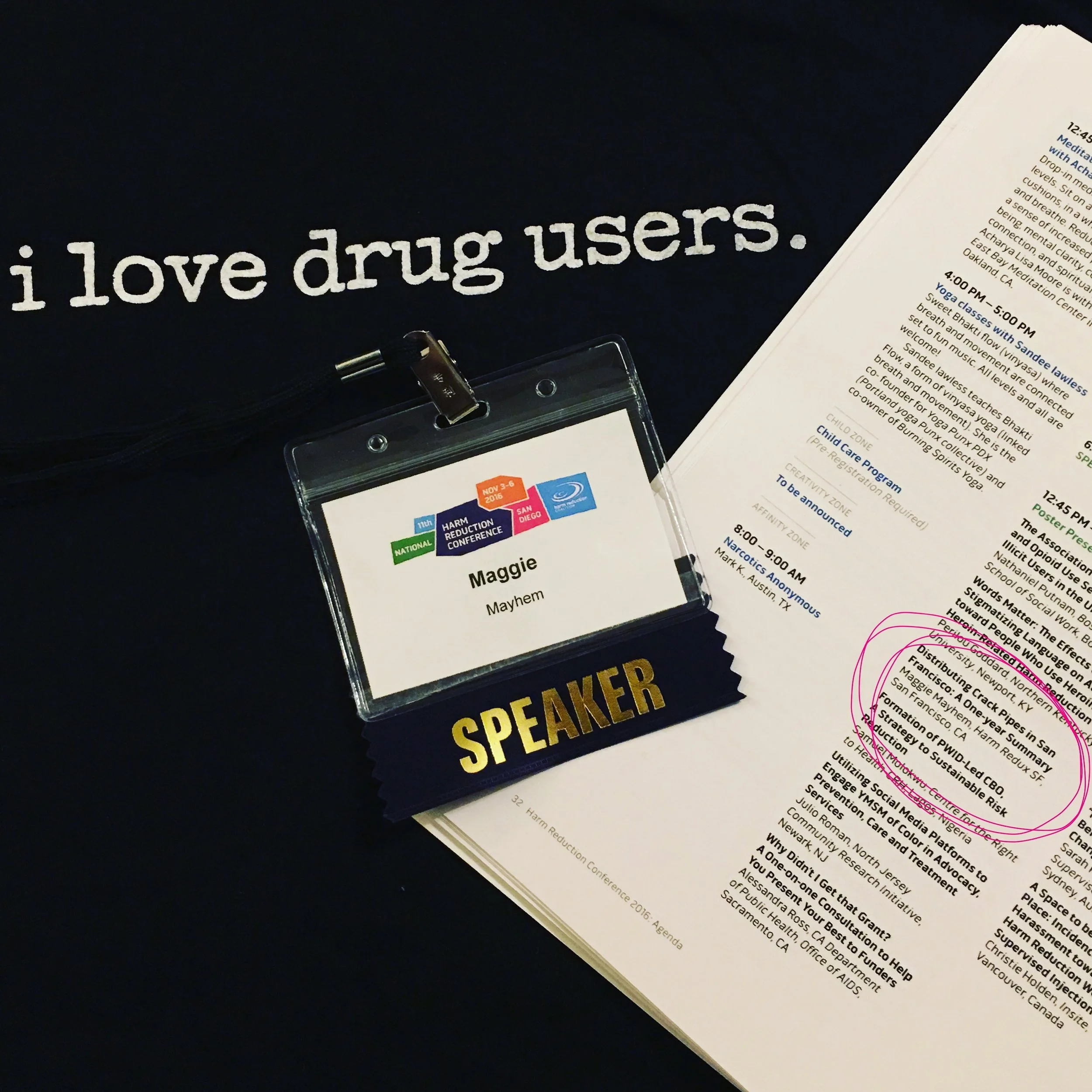Our Mission
Harm Redux expands syringe access to include pipes and safer smoking supplies to decrease the risk of infection and to increase the health and quality of life among those who use crack cocaine and the communities where they live.
We do this by distributing:
- Referrals to recovery centers
- Food pantry/meal distribution info
- Shower & hygiene referrals
- Socks on request
- Overdose/Overamping management & prevention
- Bad package information
- Clean pyrex pipe
- Copper filter
- Alcohol wipes
- Antiseptic burn cream
- Antibiotic ointment
- Beeswax lip balm
- Multivitamin pack
Our Challenge
Pipe distribution is currently a violation of the law because pipes used to consume crack cocaine are officially recognized as drug paraphernalia which makes them illegal to possess or distribute. Without access to pipes, many individuals who would otherwise prefer to smoke are compelled to use intravenously. While smoking does significantly decrease the risks of injection, pipe sharing among users has been linked to Hepatitis C infections. Hepatitis C is a blood-borne virus causing chronic liver disease and is on the rise. It is much more virulent than HIV; it can survive at room temperature on the surface of an object for up to 6 weeks and possibly longer and is resistant to bleach, boiling water, and freeze drying. Ad hoc pipes created from discarded trash on the street are unreliable and frequently break down under the heat required to consume crack cocaine causing injury to the mouth. Even use of pyrex pipes can cause a severely dry mouth that can lead to tooth decay, burn the lips, and create oral wounds which can transmit Hep C and other infections.
Many of the people who openly accept and support syringe access programs are now recycling the same criticisms formerly lobbed at needle exchange to prevent pipes from being distributed in communities that direly need them. In the United States, crack pipe distribution programs have been pushed underground but are in operation putting both health workers and users at risk. In San Francisco, Mayor Ed Lee and the Department of Public Health have formally condemned crack pipe distribution despite having seen some of the most significant gains of early syringe access adoption in the country. The city of San Francisco is now on its way to eradicating new HIV infections due in large part to harm reduction methodology including syringe access services. With its Hepatitis C rate climbing it cannot afford to close the door on crack pipe distribution by making criminals of those brave enough to volunteer to serve their city and the clients who rely upon them.
Why Pipe Distribution Helps
Crack pipe distribution allows users to maintain sole ownership of their own pipe without being reliant on sharing with others and provides education, support, and resources for safer smoking practices and recovery. Open access to pipes also reduces the violence associated with attempting to acquire a pipe in a deliberately limited market due to criminal status. Those living with an active addiction or reliance to crack cocaine who are unable to purchase pipes for themselves already face innumerable deterrents to use and access to a pipe does little to relieve those circumstances and cannot be accurately described as enabling or sustaining addiction. Clean and quality equipment is less likely to break and cause oral wounds which can increase the risk of infection. Perhaps most importantly, by meeting a need outreach workers can help establish trusting bonds with the people they interact with on a regular basis.

